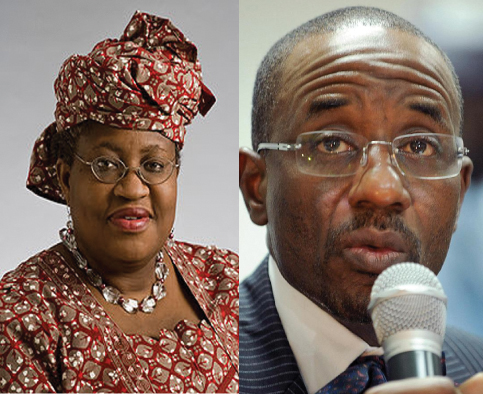The House of Representatives, on Thursday, have claimed that sixty revenue-generating agencies of the Federal Government generated and failed to remit over N9.1 trillion to the government between 2009 and 2012.
The listed agencies include the Bank of Industry, Central Bank of Nigeria, Nigerian Port Authority and Power Holding Company of Nigeria.
This was the report of an investigation by the House which showed that the agencies either spent the revenue on their operations or simply did not remit it to the Consolidated Revenue Fund of the government.
This figure is separate from about N6.312trillion it is saying that the NNPC and its subsidiaries generated internally, yet failed to remit to government from 2009 to 2011, which they also say does not include crude oil sales expected to have been paid into the Federation Account.
By the provisions of the Fiscal Responsibility Act, 2007, the agencies are allowed to remit revenue to the government “based on an operating surplus framework.”
The House had in November 2012 directed its Committee on Finance to investigate independent revenue generation and remittances by Federal Government agencies.
Out of the close to 600 agencies of the Federal Government, the committee’s work covered the first set of 60 agencies considered to be “major earners”.
It found that the agencies used the clause in the Act to “spend as much of their internally-generated revenue as possible, leaving little or no surpluses for the treasury” to not remit anything to government coffers.
The committee chairman, Mr Abdulmumini Jibrin, while briefing the House, said members found “very shocking revelations”.
“The agencies are simply bleeding this country dry. Not until we take drastic steps to stop them, huge funds that we would have used to execute capital projects will continue to go down the drain,” he said.
The report showed that while the agencies generated N3.06trillion in 2009, only N46.8bn or 1.53per cent was remitted to the government.
In 2010, the sum of N3.07tn was generated, but N54.1bn or 1.76 per cent was remitted. For 2011, the generated figure was N3.17tn, out of which N73.8bn or 2.33 per cent was remitted.
The report added that out of the N189bbn expected to have been remitted as at October 2012, only N80bn was remitted, leaving a shortfall of N109bn.
All in all, the committee discovered that total remittance to the government out of N9.4trillion was a paltry N254.7bn.
The committee also indicted some agencies for keeping certain revenue sources from scrutiny.
It stated, “The Federal Inland Revenue Service declared an IGR of N5.6m in 2009. However, a review of the audited accounts showed another income sub-head of N323m.
“This trend continued in 2010 and 2011. This is equally a common practice with most agencies.”
The House considered and adopted the report on Thursday, asking the committee to propose amendments to the loopholes in the Fiscal Responsibility Act within four weeks.
It also directed the Federal Ministry of Finance to “ensure that all funds hidden in various agencies’ bank accounts be mopped up and promptly remitted to the Consolidated Revenue Fund and report back to the committee within three months.”
In addition, the House called for “stringent disciplinary actions to be taken against any agency found to be spending outside budgetary provisions.”
However, in the course of the investigation, most of the agencies argued that they spent funds to provide services within the limits of their enabling laws.

